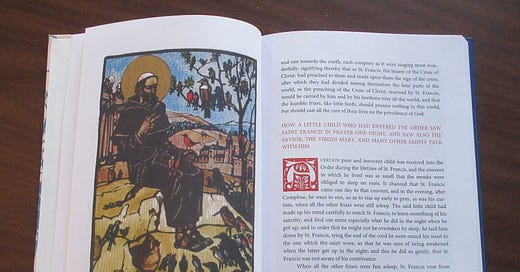Weekly Roundup, October 4 Edition
St. Francis and a Dominican preacher; papal fallout; sins of synodality; backwardist chasubles; Knox on enthusiasm; balls and a mazurka
Preliminaries
Welcome to this Friday’s edition of the Weekly Roundup.
This past week, Tradition & Sanity exceeded 8,000 free readers. We’re very glad to have you reading our work!
Allow me to urge you again, especially if you’ve been enjoying our posts for a while and benefiting from them: please take out a paid subscription to enable us (that is, Julian …
Keep reading with a 7-day free trial
Subscribe to Tradition and Sanity to keep reading this post and get 7 days of free access to the full post archives.





